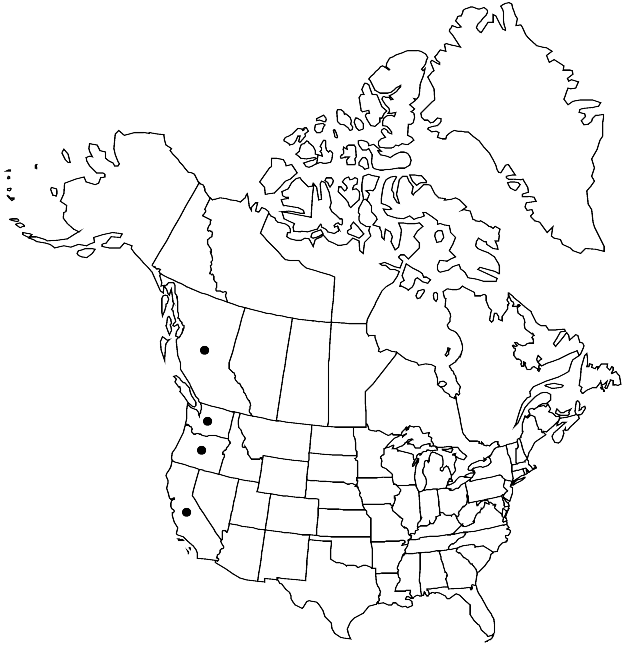Difference between revisions of "Scleropodium touretii"
Rev. Bryol. Lichénol. 18: 177. 1949.
FNA>Volume Importer |
FNA>Volume Importer |
||
| Line 11: | Line 11: | ||
|label=Selected by author to be illustrated | |label=Selected by author to be illustrated | ||
}} | }} | ||
| − | |basionyms={{Treatment/ID/ | + | |basionyms={{Treatment/ID/Basionym |
|name=Hypnum touretii | |name=Hypnum touretii | ||
|authority=Bridel | |authority=Bridel | ||
| + | |publication_title=Muscol. Recent., suppl. | ||
| + | |publication_place=2: 185. 1812 | ||
}} | }} | ||
|synonyms= | |synonyms= | ||
| Line 28: | Line 30: | ||
|distribution=North America;nw Mexico;w Eurasia;n Africa;Atlantic Islands. | |distribution=North America;nw Mexico;w Eurasia;n Africa;Atlantic Islands. | ||
|discussion=<p>Varieties 2 (2 in the flora).</p><!-- | |discussion=<p>Varieties 2 (2 in the flora).</p><!-- | ||
| − | --><p><i>Scleropodium touretii</i> is recognized by its tumid and turgid foliage, and by short but conspicuous leaf apices that are filiform and often squarrose. <i>Scleropodium</i> colpophyllum is often treated as a separate species [D. H. Norris and J. R. Shevock (2004) and L. E. Anderson et al. (1990)], while E. Lawton (1967) treated it as a variety of <i>S. touretii</i>. The latter point of view is accepted here because phenotypes with loosely arranged leaves are known also in <i>S. cespitans</i> and <i>S. obtusifolium</i>. Loosely foliate shoots can be found inside extensive mats of otherwise typical and well-developed <i>S. touretii</i>, and <i></i>var.<i> colpophyllum</i> occurs usually in more mesic and shaded habitats than <i></i>var.<i> touretii</i>; those are sites where many mosses develop looser foliage. The basal juxtacostal cells sometimes have one row of larger quadrate cells below them.</p> | + | --><p><i>Scleropodium touretii</i> is recognized by its tumid and turgid foliage, and by short but conspicuous leaf apices that are filiform and often squarrose. <i>Scleropodium</i> colpophyllum is often treated as a separate species [D. H. Norris and J. R. Shevock (2004) and L. E. Anderson et al. (1990)], while E. Lawton (1967) treated it as a variety of <i>S. touretii</i>. The latter point of view is accepted here because phenotypes with loosely arranged leaves are known also in <i>S. cespitans</i> and <i>S. obtusifolium</i>. Loosely foliate shoots can be found inside extensive mats of otherwise typical and well-developed <i>S. touretii</i>, and <i></i></i>var.<i><i> colpophyllum</i> occurs usually in more mesic and shaded habitats than <i></i></i>var.<i><i> touretii</i>; those are sites where many mosses develop looser foliage. The basal juxtacostal cells sometimes have one row of larger quadrate cells below them.</p> |
|tables= | |tables= | ||
|references= | |references= | ||
| Line 63: | Line 65: | ||
|publication year=1949 | |publication year=1949 | ||
|special status=Selected by author to be illustrated | |special status=Selected by author to be illustrated | ||
| − | |source xml=https://jpend@bitbucket.org/aafc-mbb/fna-data-curation.git/src/ | + | |source xml=https://jpend@bitbucket.org/aafc-mbb/fna-data-curation.git/src/f6b125a955440c0872999024f038d74684f65921/coarse_grained_fna_xml/V28/V28_725.xml |
|genus=Scleropodium | |genus=Scleropodium | ||
|species=Scleropodium touretii | |species=Scleropodium touretii | ||
Revision as of 19:47, 24 September 2019
Plants medium-sized to large, in loose mats, green to yellowish or brownish. Stems to 10 cm, leafy shoots 0.5–1 mm wide, branches julaceous and tumid to distantly foliate. Stem leaves closely imbricate to distant, broadly ovate to ovate-oblong, 0.9–1.5(–2) × 0.3–1(–1.2) mm; margins subentire proximally, serrulate distally; apex abruptly narrowed to short acumen or apiculus; alar cells quadrate, 10–12 µm, walls moderately thin, region undifferentiated or small; laminal cells 35–65(–90) × 3–5 µm; basal juxtacostal cells elongate, 10–25 × 5–8 µm. Seta 1–2 cm, strongly roughened throughout. Capsule inclined to horizontal. Spores 11–14 µm.
Distribution

North America, nw Mexico, w Eurasia, n Africa, Atlantic Islands.
Discussion
Varieties 2 (2 in the flora).
Scleropodium touretii is recognized by its tumid and turgid foliage, and by short but conspicuous leaf apices that are filiform and often squarrose. Scleropodium colpophyllum is often treated as a separate species [D. H. Norris and J. R. Shevock (2004) and L. E. Anderson et al. (1990)], while E. Lawton (1967) treated it as a variety of S. touretii. The latter point of view is accepted here because phenotypes with loosely arranged leaves are known also in S. cespitans and S. obtusifolium. Loosely foliate shoots can be found inside extensive mats of otherwise typical and well-developed S. touretii, and var. colpophyllum occurs usually in more mesic and shaded habitats than var. touretii; those are sites where many mosses develop looser foliage. The basal juxtacostal cells sometimes have one row of larger quadrate cells below them.
Selected References
None.
Key
| 1 | Branches strongly julaceous, tumid, turgid; leaves deeply concave. | Scleropodium touretii var. touretii |
| 1 | Branches sometimes julaceous, loosely foliate; leaves moderately concave. | Scleropodium touretii var. colpophyllum |